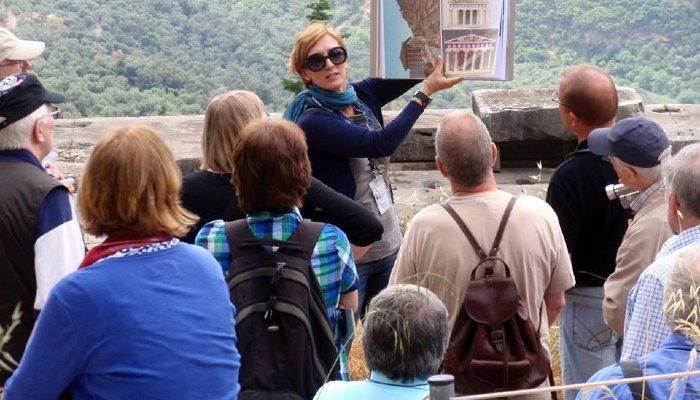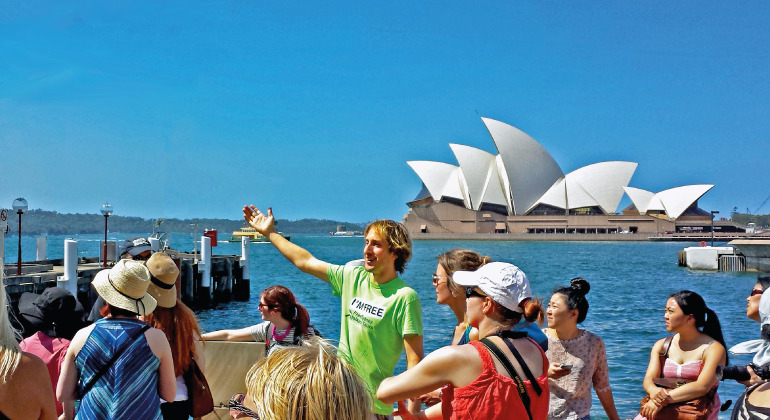
Introduction: Understanding the Role of a Tour Guide
A tour guide plays a critical role in transforming travel from mere sightseeing into a rich, immersive experience. Beyond navigating routes and sharing facts, a tour guide serves as a cultural ambassador, storyteller, and facilitator, bridging the gap between travelers and local environments. Whether leading small groups through historical cities, guiding adventure expeditions in remote regions, or curating culinary experiences, tour guides enhance understanding, safety, and enjoyment for visitors. This article provides an in-depth exploration of the responsibilities, skills, types, training, and impact of tour guides in modern tourism.
What Is a Tour Guide?
A tour guide is a trained professional who provides information, interpretation, and assistance to travelers, ensuring they experience destinations safely and meaningfully. The role extends beyond logistics, encompassing:
- Information Sharing: Explaining historical, cultural, geographical, and ecological aspects of a destination.
- Safety and Navigation: Ensuring travelers navigate unfamiliar areas safely and follow local regulations.
- Cultural Mediation: Helping tourists understand local customs, etiquette, and social norms.
- Enhanced Engagement: Designing interactive and educational experiences that foster deeper appreciation of the destination.
- Problem Solving: Assisting travelers with unexpected challenges, such as language barriers, transportation delays, or emergencies.
Tour guides are pivotal in shaping the quality, safety, and memorability of travel experiences, making them indispensable in the tourism ecosystem.
Types of Tour Guides
Tour guides can be categorized based on specialization, location, and style of engagement:
- Local or City Guides: Focus on urban areas, historical landmarks, museums, and cultural attractions. They often specialize in city tours, walking tours, or neighborhood explorations.
- Adventure and Outdoor Guides: Lead trekking, mountaineering, rafting, or wildlife safaris, ensuring safety and providing expertise on terrain, equipment, and environmental conservation.
- Cultural and Heritage Guides: Provide in-depth insights into local traditions, architecture, art, festivals, and indigenous practices.
- Specialized Subject Guides: Experts in specific areas such as culinary tours, wine tastings, photography, archaeology, or ecological education.
- Travel Escort Guides: Accompany travelers on multi-city or international tours, coordinating schedules, transportation, and group logistics.
- Virtual or Online Guides: Facilitate tours remotely through digital platforms, offering live or recorded experiences for those unable to travel physically.
Identifying the type of tour guide required is essential to match the traveler’s interests, expertise needed, and mode of travel.
Essential Skills of a Tour Guide
Professional tour guides must possess a combination of knowledge, interpersonal skills, and practical abilities:
- Communication Skills: Clear verbal articulation, engaging storytelling, and multilingual abilities enhance understanding and enjoyment.
- Knowledge and Expertise: In-depth understanding of history, culture, geography, ecology, or specialized subjects is fundamental.
- Interpersonal Skills: Patience, empathy, conflict resolution, and the ability to interact with diverse groups of travelers.
- Organizational Abilities: Managing schedules, group logistics, ticketing, and transportation efficiently.
- Problem-Solving Skills: Quick thinking in emergencies, itinerary changes, or unexpected challenges.
- Adaptability: Responding to weather conditions, cultural nuances, and varying traveler needs.
- Safety Awareness: Understanding first aid, emergency protocols, and local safety regulations.
These skills ensure that a tour guide provides safe, engaging, and enriching experiences for visitors.
Responsibilities and Duties of Tour Guides
Tour guides perform a wide array of responsibilities depending on the type and scope of tours:
- Pre-Tour Planning: Researching destinations, arranging permits, coordinating transportation, and preparing educational content.
- Leading Tours: Navigating routes, explaining points of interest, and facilitating group engagement.
- Cultural Interpretation: Explaining local customs, social etiquette, and historical context to promote understanding.
- Customer Service: Addressing inquiries, assisting with problems, and ensuring overall traveler satisfaction.
- Safety Management: Monitoring conditions, advising on risks, and implementing emergency protocols.
- Promoting Local Economy: Guiding visitors to local businesses, restaurants, and markets to support community development.
- Documentation and Reporting: Maintaining records of group attendance, incidents, and feedback for tour operators or agencies.
By executing these responsibilities, tour guides become the primary interface between travelers and the destination, greatly influencing the quality of the overall experience.
Training and Certification of Tour Guides
Professional tour guides undergo training and certification to ensure competence and credibility:
- Formal Education: Courses in tourism, hospitality, history, geography, languages, and cultural studies.
- Certification Programs: Many countries require licensed or certified guides who pass examinations assessing knowledge, language proficiency, and practical skills.
- First Aid and Safety Training: Courses in CPR, wilderness survival, and emergency response protocols.
- Specialized Workshops: Training in areas like ecological tourism, culinary experiences, or adventure guiding.
- Soft Skills Development: Public speaking, conflict resolution, customer service, and group management.
Training ensures that tour guides can deliver accurate, safe, and engaging experiences while adhering to professional and ethical standards.
Technology and Tour Guiding
Modern tour guiding increasingly integrates technology to enhance efficiency and engagement:
- Digital Guides and Apps: Mobile apps provide interactive maps, historical data, and virtual guides for self-paced exploration.
- Audio Guides: Handheld or downloadable devices allow visitors to access detailed information at their own pace.
- Virtual Reality Tours: Immersive experiences of destinations for those unable to travel physically.
- Online Booking and Communication: Tour guides coordinate schedules, manage reservations, and communicate with travelers digitally.
- Social Media and Digital Marketing: Guides and agencies showcase destinations, attract clients, and share educational content online.
Technology complements traditional guiding by enhancing accessibility, personalization, and interactivity for modern travelers.
The Impact of Tour Guides on Travel Experiences
Tour guides significantly influence the overall travel experience:
- Cultural Understanding: Guides interpret local customs, traditions, and historical context, fostering meaningful engagement.
- Safety and Comfort: By managing logistics, safety precautions, and travel challenges, guides provide peace of mind.
- Memorable Experiences: Storytelling, interactive activities, and curated itineraries enhance enjoyment and emotional connection.
- Support for Local Communities: Guiding encourages sustainable tourism and economic benefits for local businesses.
- Education and Awareness: Guides promote environmental conservation, historical knowledge, and social responsibility.
A skilled tour guide transforms a visit from a simple journey into a rich, educational, and immersive experience.
Challenges Faced by Tour Guides
Tour guides encounter various challenges in their profession:
- Diverse Group Dynamics: Managing groups with different interests, languages, or physical abilities can be complex.
- Cultural Sensitivity: Ensuring respect for local customs while accommodating tourist expectations.
- Weather and Environmental Conditions: Adverse conditions can disrupt schedules and activities.
- Safety Risks: Remote or adventurous locations require vigilance and preparedness.
- Economic Pressures: Seasonal demand fluctuations and competition may affect job stability.
Overcoming these challenges requires adaptability, continuous learning, and strong interpersonal skills.
Maximizing Your Tour Guide Experience
Travelers can enhance their experience by collaborating effectively with tour guides:
- Engage and Ask Questions: Interact actively, seek clarifications, and express curiosity.
- Follow Instructions: Respect safety protocols, local customs, and group guidelines.
- Provide Feedback: Constructive feedback improves service and benefits future travelers.
- Participate in Activities: Join hands-on experiences, workshops, and excursions for deeper engagement.
- Respect the Environment and Community: Support sustainable practices and local businesses recommended by guides.
Active participation ensures a more rewarding and meaningful journey for travelers and communities alike.
Conclusion: Tour Guides as Cultural Ambassadors and Facilitators
Tour guides are integral to modern travel, providing expertise, safety, and enriched experiences for travelers. They serve as educators, storytellers, and facilitators, bridging the gap between visitors and destinations. From cultural interpretation to adventure facilitation and logistical management, tour guides elevate travel experiences to memorable, educational, and immersive journeys. By selecting skilled guides, engaging actively, and respecting local contexts, travelers can maximize both enjoyment and understanding, making every trip transformative and impactful.
FAQ Section
What qualifications are needed to become a professional tour guide?
Qualifications often include certification or licensing, knowledge of history and culture, language proficiency, first aid training, and customer service skills.
Do tour guides work individually or through agencies?
Tour guides can work independently, with travel agencies, or as part of larger tour companies, depending on the region and type of service.
How do tour guides enhance cultural experiences?
Guides provide context, storytelling, and explanations of customs, traditions, and historical significance, enabling travelers to engage more deeply with the destination.
Are tour guides required for safety in adventure tourism?
Yes. In trekking, rafting, or wildlife tours, guides ensure safety, manage equipment, and respond to emergencies.
Can tour guides help with local transportation and logistics?
Absolutely. Guides assist with navigation, transportation planning, bookings, and time management, making travel smoother and more efficient.
What is the role of technology in modern tour guiding?
Technology enhances guiding through apps, virtual tours, audio guides, online booking, and digital communication, improving convenience and engagement.
How can travelers choose the right tour guide?
Consider certifications, reviews, experience in the destination, language skills, specialization, and approachability to ensure compatibility and quality service.






